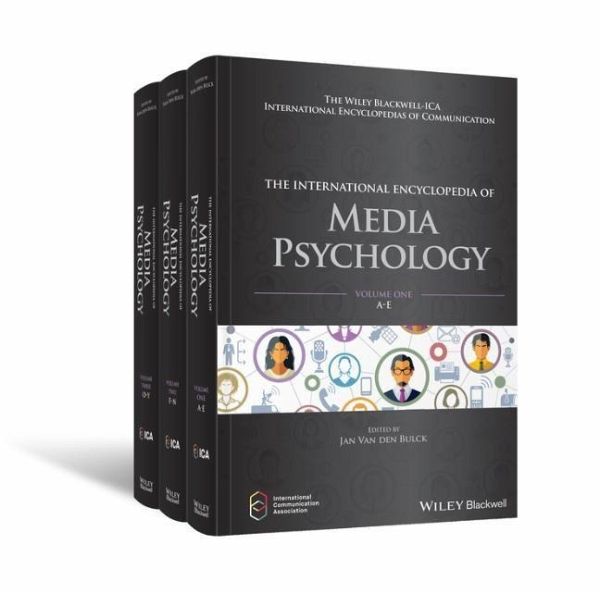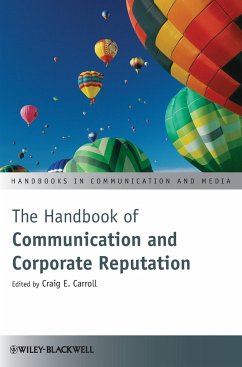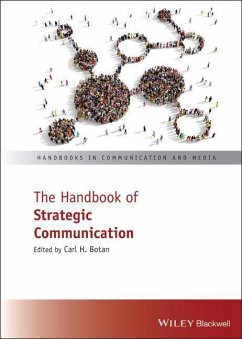
The International Encyclopedia of Media Psychology, 3 Volume Set
Versandkostenfrei!
Versandfertig in über 4 Wochen
601,99 €
inkl. MwSt.

PAYBACK Punkte
301 °P sammeln!
The definitive international reference work on how communication technology and media phenomena affect human psychology.The International Encyclopedia of Media Psychology provides a thorough guide to the foundational theories and the exciting new developments within this dynamic field--a growing area of study that investigates how and why human behavior is influenced by interacting with media and technology. Covering a wide range of interdisciplinary methodologies, this comprehensive reference work explores how media affects psychological responses, the ways these responses interact with media...
The definitive international reference work on how communication technology and media phenomena affect human psychology.
The International Encyclopedia of Media Psychology provides a thorough guide to the foundational theories and the exciting new developments within this dynamic field--a growing area of study that investigates how and why human behavior is influenced by interacting with media and technology. Covering a wide range of interdisciplinary methodologies, this comprehensive reference work explores how media affects psychological responses, the ways these responses interact with media variables, and the various methods of empirical analysis for developing models of users' processing of their media experience.
Edited by an internationally-recognized expert in the field, the Encyclopedia contains more than 300 entries written by leading figures and promising young researchers alike, exploring flow theory, media aggression, the Reinforcing Spirals Model (RSM), social identity theory, Fear of Missing Out (FOMO), Joint Media Engagement (JME), audience flow research, gender identification, and many other concepts. Throughout the text, in-depth yet accessible entries illustrate how long-established ideas are providing insight into new phenomena, and how cutting-edge methods are enabling a better understanding of traditional, well-researched topics.
_ Examines psychological theories, process models, and quantitative empirical research
_ Covers advances in psychophysiological and big data methodologies
_ Explores the relation between media use and the development of racial and ethnic identities
_ Discusses new media challenges, developmental issues in children and adults, and non-experimental approaches, and the expanding field of psychological measurement
_ Includes complete cross references, enabling readers to easily find related topics and competing theories
_ Part of The Wiley Blackwell-ICA International Encyclopedias of Communication series, published in conjunction with the International Communication Association. Online version available at http://www.wileyicaencyclopedia.com
The International Encyclopedia of Media Psychology is invaluable for psychologists looking to keep current on research on media and communication, for media researchers needing solid background information on psychological theories and processes, and for students and scholars across the social sciences, including psychology, media studies, sociology, political science, information science, and criminology.
The International Encyclopedia of Media Psychology provides a thorough guide to the foundational theories and the exciting new developments within this dynamic field--a growing area of study that investigates how and why human behavior is influenced by interacting with media and technology. Covering a wide range of interdisciplinary methodologies, this comprehensive reference work explores how media affects psychological responses, the ways these responses interact with media variables, and the various methods of empirical analysis for developing models of users' processing of their media experience.
Edited by an internationally-recognized expert in the field, the Encyclopedia contains more than 300 entries written by leading figures and promising young researchers alike, exploring flow theory, media aggression, the Reinforcing Spirals Model (RSM), social identity theory, Fear of Missing Out (FOMO), Joint Media Engagement (JME), audience flow research, gender identification, and many other concepts. Throughout the text, in-depth yet accessible entries illustrate how long-established ideas are providing insight into new phenomena, and how cutting-edge methods are enabling a better understanding of traditional, well-researched topics.
_ Examines psychological theories, process models, and quantitative empirical research
_ Covers advances in psychophysiological and big data methodologies
_ Explores the relation between media use and the development of racial and ethnic identities
_ Discusses new media challenges, developmental issues in children and adults, and non-experimental approaches, and the expanding field of psychological measurement
_ Includes complete cross references, enabling readers to easily find related topics and competing theories
_ Part of The Wiley Blackwell-ICA International Encyclopedias of Communication series, published in conjunction with the International Communication Association. Online version available at http://www.wileyicaencyclopedia.com
The International Encyclopedia of Media Psychology is invaluable for psychologists looking to keep current on research on media and communication, for media researchers needing solid background information on psychological theories and processes, and for students and scholars across the social sciences, including psychology, media studies, sociology, political science, information science, and criminology.












